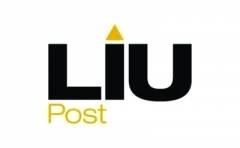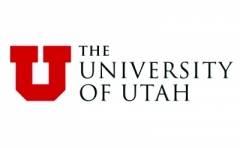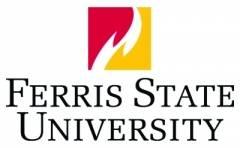Best Health Information/Medical Records Technology/Technician colleges in the U.S. 2025
Obtaining an associate’s degree in health information/medical records technology/technician allows an individual to ensure the quality of medical records by verifying accuracy through proper data entry. This certification can lead to a career as a health data analyst, medical records technician, insurance claims analyst, clinical coding specialist, and patient information coordinator. Additionally, you’ll learn skills in compliance with privacy laws and how to provide information to make fair judgements in health information and medical records of patients.
Click Here to See the Best Colleges in the USBest Health Information/Medical Records Technology/Technician colleges in the U.S. for 2025
Thomas Jefferson University offers 2 Health Information/Medical Records Technology/Technician degree programs. It's a medium sized, private not-for-profit, four-year university in a large city. In 2022, 3 Health Information/Medical Records Technology/Technician students graduated with students earning 3 Certificates.


The University of Tennessee-Knoxville offers 1 Health Information/Medical Records Technology/Technician degree programs. It's a very large, public, four-year university in a midsize city. In 2022, 1 Health Information/Medical Records Technology/Technician students graduated with students earning 1 Certificate.
Kennesaw State University offers 2 Health Information/Medical Records Technology/Technician degree programs. It's a very large, public, four-year university in a large suburb. In 2022, 5 Health Information/Medical Records Technology/Technician students graduated with students earning 5 Certificates.
Southern Illinois University Edwardsville has a range of bachelor’s and master’s programs for students interested in enrolling in an online degree program, some of which include their Bachelor’s of Science in Informatics: Healthcare Informatics, and the Bachelor’s of Science in Business Administration: Healthcare Management.
Saint Peter's University offers 1 Health Information/Medical Records Technology/Technician degree programs. It's a small, private not-for-profit, four-year university in a large city.
Indiana University Purdue University Indianapolis (IUPUI) is a great place for prospective applicants to look when applying to programs in the healthcare information technology sector. Online options allow for added flexibility for working professionals and can be a great way to acquire relevant skills that can be put to use in the marketplace after they complete their studies.
The University of Tennessee Health Science Center offers 2 Health Information/Medical Records Technology/Technician degree programs. It's a small, public, four-year university in a large city.
Ferris State University offers 1 Health Information/Medical Records Technology/Technician degree programs. It's a large, public, four-year university in a faraway town. In 2022, 16 Health Information/Medical Records Technology/Technician students graduated with students earning 16 Associate's degrees.
Find local colleges with Health Information/Medical Records Technology/Technician majors in the U.S.
What is Health Information/Medical Records Technology/Technician?
Students that pursue a career in health information technology study how computers and networks work in tandem to maintain essential hospital functions like the transfer of patient data, and the relaying of prescriptions from doctors to pharmacists. A degree in health Information technology provides the foundational skills needed to work at a hospital, medical clinic, or dental office to ensure their systems are running properly and addressing any bugs that could impede these processes.
Associate Degree in Health Information/Medical Records Technology/Technician
Students can apply to a range of degree programs offered online that provide varying levels of academic rigor. For those that look to enter the workplace soon, an online Associate in Healthcare Management can be a great first step toward a promising career path. These programs are offered asynchronously and provide a level of flexibility for working professionals or those that are trying to complete their degree from home.
Bachelor's Degree in Health Information/Medical Records Technology/Technician
Many high school graduates opt to enroll in four-year bachelor’s programs to gain relevant skills needed to excel in the field. These programs allow for increased student-teacher interaction and can allow students the opportunity to collaborate virtually with their fellow peers in break-out sessions and online tutorials. Some degree options include a Bachelor of Science in Health Information Management or a Bachelor of Science in Healthcare Informatics.
Master's Degree in Health Information/Medical Records Technology/Technician
Many working professionals choose to pursue online master’s programs in the healthcare information technology field to further their chances of landing competitive roles in the field. Online master’s programs typically last from one to two years and provide ample opportunities for students to interact with faculty members and peers. Given the digital nature of this program, taking online classes is a great way to bolster one’s understanding of information technology from a healthcare lens.
Doctoral Degree in Health Information/Medical Records Technology/Technician
As a doctorate-level student in healthcare information technology, students can anticipate spending from four to six years in an academic setting working closely with faculty members in their department on research and development. Often these same connections prove to be beneficial for graduates looking to capitalize on their networks to further their career aspirations. Most degree programs require a student to complete a dissertation and defense, which many students choose to publish upon completion in relevant academic journals.
Certification and Licensure in Health Information/Medical Records Technology/Technician
There are a variety of certificates that students can take to boost their resumes and acquire marketable skills in a short period of time, and some certificates within the healthcare information technology sector include but are not limited to:
- HealthCare Information Security and Privacy Practitioner certification
- Certified Health Data Analyst certificate
These courses condense coursework and prepare students to pass exit exams upon completion.
What Can I Do with a Degree in Health Information/Medical Records Technology/Technician?
A degree in health information technology gives students the skills they need to secure roles in hospitals and clinics as medical billing specialists or IT generalists. Information exchange is a critical process within the medical profession, and health information technology specialists work to ensure that these transfers of information are uninterrupted so that doctors' and nurses' directions are captured and stored online.
Information technology can be applied outside of clinical settings and can be found in the pharmaceutical and physical therapy sector as well. Pharmacists and therapists rely on information exchange to keep track of their patients' progress and to determine their dosage when administering a prescription.
There are a wide variety of career options for those interested in entering the healthcare information technology sector. Some roles include Health Information Specialists, which according to BLS gross an average of $45,000 annually, while Computer Systems and Information Managers can earn up to $150,000.
Earning an Online Health Information/Medical Records Technology/Technician Degree
Due to the computer-based needs of a health information technology specialist, many degree programs are offered online. While in-person interaction and collaboration prove to be critical to a graduate's professional trajectory, getting an online degree can impart the tangible skills needed to enter this professional field. It is understandable that prospective students are attracted to the added flexibility of working from home and given the prevalence of online programs, this approach is very feasible.
Health Information/Medical Records Technology/Technician FAQ
List of all Health Information/Medical Records Technology/Technician colleges in the U.S.
| School | Average Tuition | Student Teacher Ratio | Enrolled Students | |
|---|---|---|---|---|

|
Long Island University Brookville, NY | 41 : 1 | 15,737 | |

|
Thomas Jefferson University Philadelphia, PA | 29 : 1 | 8,286 | |

|
The University of Tennessee-Knoxville Knoxville, TN | 19 : 1 | 33,805 | |

|
Kennesaw State University Kennesaw, GA | 33 : 1 | 43,190 | |

|
Southern Illinois University-Edwardsville Edwardsville, IL | 20 : 1 | 12,519 | |








